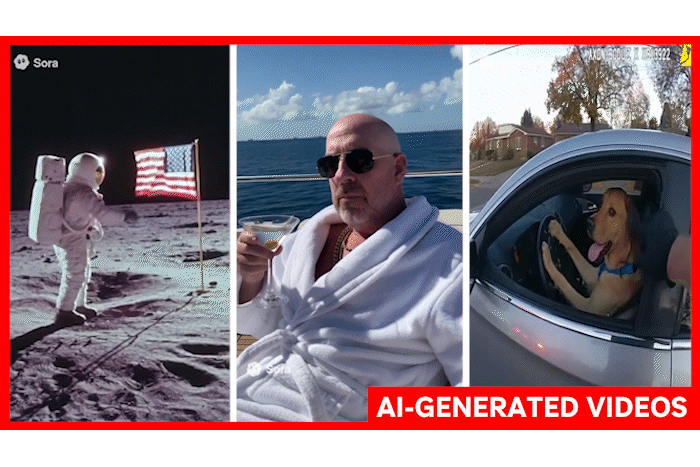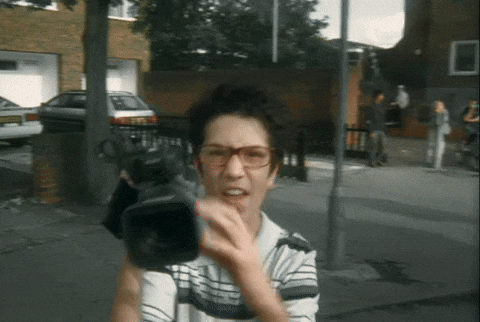- The Creator Lens
- Posts
- 🤖 The true cost of Sora is revealed as Google's AI Overviews crush website traffic.
🤖 The true cost of Sora is revealed as Google's AI Overviews crush website traffic.
Planning your 2026 budget? You'll need a line item for AI video. We're also breaking down the trend threatening creative careers. Let’s dive in.
In today's rundown
VISUAL CREATORS
For your artistic side.
The Story: OpenAI's video generator, Sora, is reportedly costing the company $15 million per day, a figure its own team calls "completely unsustainable." This massive cash burn signals an inevitable shift away from free access, meaning the era of powerful, free AI video tools is temporary, with significant monetization on the horizon for creatives.
The Details:
Estimates place Sora's daily operational cost at around $15 million, totaling over $5 billion annually.
Generating a single 10-second video costs OpenAI approximately $1.30 due to the immense computational power required for complex video models.
OpenAI's head of Sora, Bill Peebles, has publicly stated that the current economics of the service are "completely unsustainable."
The company's strategy mirrors a classic tech "land grab," prioritizing market share and user engagement now to monetize later.
While OpenAI has launched a new social app for Sora 2, CEO Sam Altman confirmed an ad model can't support the current costs.
Why It Matters: The "free trial" era for high-end AI video is ending. Freelancers and agencies must start planning for these tools to become significant line items in project budgets. This financial reality will force a strategic decision: absorb the cost, pass it to clients, or stick to less powerful tools, shaping future workflows and pricing models.
PRODUCTION MASTERY
The commercial aspects of creativity.
The Story: Google’s AI Overviews are causing a massive drop in website traffic for content creators. According to a report from the Daily Mail, click-through rates from search results plummet by 80-90% when an AI-generated summary appears. This shift means users get answers without needing to visit the original source, threatening a core pillar of online discovery.
The Details:
The 80-90% traffic drop is a sharp increase from the 56% decline reported earlier in May 2025.
For a large publisher like the Daily Mail, the total traffic impact is still a “low single-digit” percentage, as AI Overviews don't yet appear for all keywords.
While Google aims to avoid AI Overviews for hard news, publishers report they are appearing on news queries, contributing to what some call an “existential crisis”.
In response, many creators and publishers are shifting focus to building direct traffic through newsletters, subscriptions, and branded search.
Some SEO experts now see search as a “visibility opportunity” for brand awareness rather than a reliable source of direct traffic.
Why It Matters: For creators and brands reliant on SEO, this signals an urgent need to diversify traffic sources. The 'zero-click' future means building a direct audience through newsletters, social channels, and community is no longer optional. Your content strategy must now focus on brand-building and direct relationships, not just ranking on Google.
CREATOR ECONOMY
Navigating the digital creative world.

The Story: A recent essay argues that Big Tech and generative AI are accelerating the devaluation of creative work. From streaming platforms squeezing creator pay to AI models training on artists' work without consent, a trend is emerging that threatens the livelihoods of the creative middle class, making it harder for artists to thrive.
The Details:
The collapse of the creative middle class is linked to corporate greed from companies like Amazon, Spotify, and Netflix that change how art is consumed and valued.
The generative AI industry, valued at almost a trillion dollars, is criticized for being built on the work of creators without compensation.
This trend extends into education, where standardized testing favors reading excerpts over whole books, eroding deep engagement with creative works.
The AI boom normalizes plagiarism and ignores the immense effort required to produce great creative work, from writing to visual arts.
Even leaders in creative industries, like publishing CEOs, are championing AI, raising concerns about their commitment to human artists.
Why It Matters: For visual creatives, this trend directly impacts career viability. As AI models train on their work and platforms squeeze budgets, the value of craft, originality, and critical thinking is undermined. The push for more "content" over crafted art devalues expertise, puts downward pressure on rates, and threatens the sustainability of a creative career, forcing professionals to defend the value of human-made work.
📫 Sign up for The Creator Lens
🔥 Press Worthy

📽️ VISUAL CREATORS
OpenAI's Sora 2 quickly reversed its controversial "opt-out" copyright policy for training data after backlash from creators. The video generator now requires rights holders to "opt-in," highlighting the growing role for agencies in navigating complex AI-related IP risks for clients.
The New York Times is launching a "Watch" tab in its app, featuring a curated, swipeable feed of vertical videos. The move signals a major publisher treating short-form video as a core storytelling format, distinct from algorithm-driven social platforms.
📈 PRODUCTION MASTERY
Getty Images largely lost its landmark UK copyright lawsuit against Stability AI. A judge ruled that the Stable Diffusion model is not an "infringing copy" because it doesn't store original images, though Getty did secure a narrow win on trademark infringement for generated watermarks.
Actors Matthew McConaughey and Michael Caine have partnered with AI audio company ElevenLabs to create and license virtual replications of their voices. McConaughey will use the tech for his newsletter, while Caine’s voice joins a new marketplace for creative projects, signaling a major move in AI likeness deals.
🎭 CREATOR ECONOMY
A new class-action lawsuit accuses Spotify of misleading users with a "pay-for-play" system. The suit alleges that major labels pay for preferential placement in playlists and recommendations, creating a disadvantage for independent artists and undermining the platform's promise of personalized discovery.
A David Hockney portrait that went unsold at auction in 1985 is now estimated at $40 million, a 7,000% increase from its original private sale price. The dramatic valuation reflects major shifts in the art market and cultural attitudes over four decades.
📫 Sign up for The Creator Lens
📚 Learn & Grow

📽️ VISUAL CREATORS
A new model for indie filmmaker support that builds confidence and career sustainability.
How These 1-Minute Movies Are Making Billions
📈 PRODUCTION MASTERY
Netflix's push into original video podcasts signals a major new platform for creators.
A breakdown of Threads’ new podcast tools for promoting your show and engaging listeners.
🎭 CREATOR ECONOMY
The YouTube Playbook in 37 Minutes
Amazon and Netflix Are Winning: Can Old-School Media Compete?
Reply